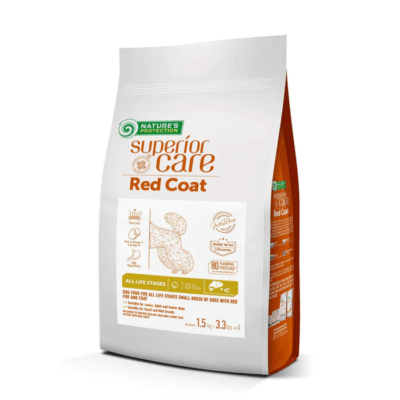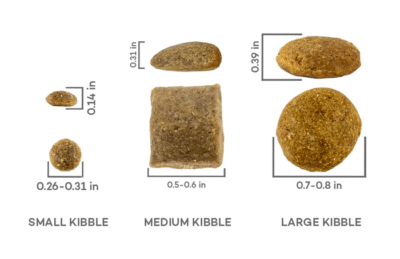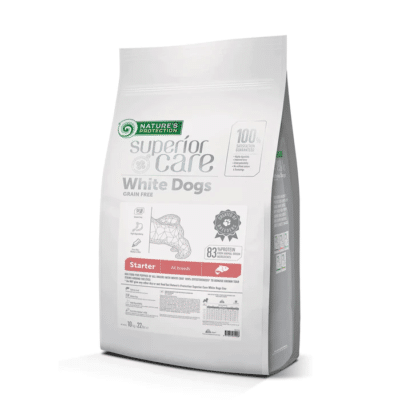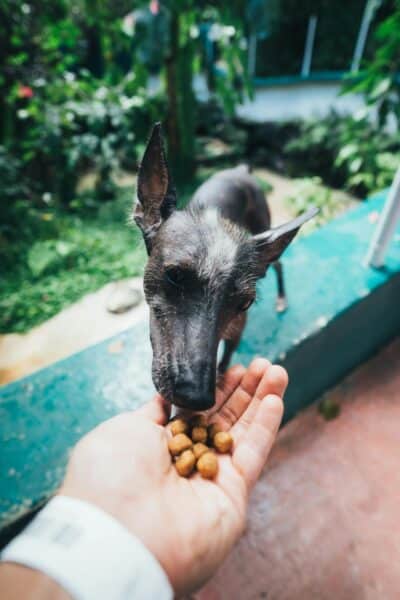As our beloved four-legged friends run, play, and nap by our side, we want the absolute best for them. Just like humans, dogs can suffer from allergies, and a significant element of allergy management in dogs is understanding the dietary impact on dogs’ health and buying the right foods through https://www.superiorcare.pet/collections/dogs-food.

IMAGE: PEXELS
Introduction To Dog Allergies And Dietary Impact
Canine nutrition and allergies can accompany each other in a multitude of things. The culprits might be airborne allergens, skin contact with particular materials, or even food.
With the rise in dog allergies and diet concerns, many pet owners are realizing the potential links between their dogs’ health issues and the food they consume. Allergies can manifest in various ways, including skin irritations, gastrointestinal problems, and the appearance of brown tear stains.

Understanding Grain Allergies In Dogs
One common type of allergy is a grain allergy. But what exactly does that mean? Wheat, corn, barley, and other grains are staples in many commercial dog foods. They’re included because they provide energy, are cost-effective, and can make kibble more palatable. Yet, for a subset of our canine buddies, these very grains that power their playful chases and energetic tail wags can become an insidious problem.

Imagine your favorite comfort food. Now imagine that very dish causing you discomfort, itching, or stomach upset. It’s a strange and unsettling thought, isn’t it? That is exactly what some dogs experience with grains.
What’s intriguing is that the issue isn’t that grains are evil villains in the story of canine nutrition. Grains have nourished countless generations of animals and humans alike.
The real problem arises when a dog’s immune system mistakenly identifies grain proteins as a threat. This misidentification can trigger an immune response, leading to inflammation and various symptoms associated with grain allergies in dogs.
This allergic response can be puzzling for many pet owners. They might notice their dog scratching incessantly, even though that dog has always eaten the same brand of dog food.
Or perhaps your puppy suddenly seems to have tummy troubles frequently. It’s all about understanding that, just like humans, dogs’ bodies can change over time. An ingredient that was once benign can, unfortunately, become a source of discomfort.
Moreover, it’s not just the primary grains we commonly recognize. There are also stealth grains, like sorghum or millet, that can sometimes be overlooked. They might sneak into the ingredient list under various names, further complicating the grain puzzle.
Benefits Of Grain-Free Diet For Allergic Dogs
Switching to a grain-free diet for dogs with grain allergies can offer numerous grain-free diet benefits for skin issues:
- Improved digestion and nutrient absorption. A dog’s digestive system might have a harder time processing grains. On a grain-free diet, the focus shifts to more digestible ingredients, thus improving nutrient absorption in canines.
- Reduction in skin irritations and itchiness. Grains can sometimes trigger skin issues in sensitive dogs. A grain-free diet benefits skin issues as many dog owners have reported a noticeable reduction in skin irritations.
- Potential alleviation of gastrointestinal Issues. Just as in humans, a dog’s gut health is essential. A grain-free diet can positively impact a dog gastrointestinal health, reducing symptoms like gas, bloating, or diarrhea.
First, positive effects will be noticed a week after switching to a new diet.

Choosing The Right Grain-Free Diet
When considering a dietary change, especially due to allergies, selecting quality products is essential:
- Reading ingredient labels. Ensure that the dog food doesn’t have hidden grains or fillers. Choosing quality dog food involves being diligent and understanding what each ingredient brings to the table.
- Individual dietary needs. Every dog is unique. While one might thrive on a chicken-based diet, another might do better with fish. Considering individual preferences and needs is crucial.
Don’t want to look for the best foods yourself? SuperiorCare is your solution. Providing access to top-notch dry foods, this brand ensures that its products are tasty and cost-effective. To know more about this brand, memorize this phone number: 1–929–810–3980.
Consulting A Veterinarian
Before making any significant changes to your dog’s diet, understand the veterinarian’s role in dog allergies and its overall health:
- Diagnosis and recommendations. Allergy testing for dogs can pinpoint specific triggers, helping tailor a suitable diet.
- Avoiding misconceptions. While many advantages come with a grain-free diet, it’s not a cure-all. Your vet can help you differentiate between facts and myths.
- Potential risks. Every diet has its pros and cons. A veterinarian can guide pet owners through the potential risks and benefits of grain-free dog food, ensuring a balanced approach.
As pet owners strive for optimal health, sites like SuperiorCare.Pet can offer the best foods for their dogs. Remember, the goal is always the well-being and happiness of our furry companions, and understanding their nutritional needs is a significant step in the right direction.

COMMENTS